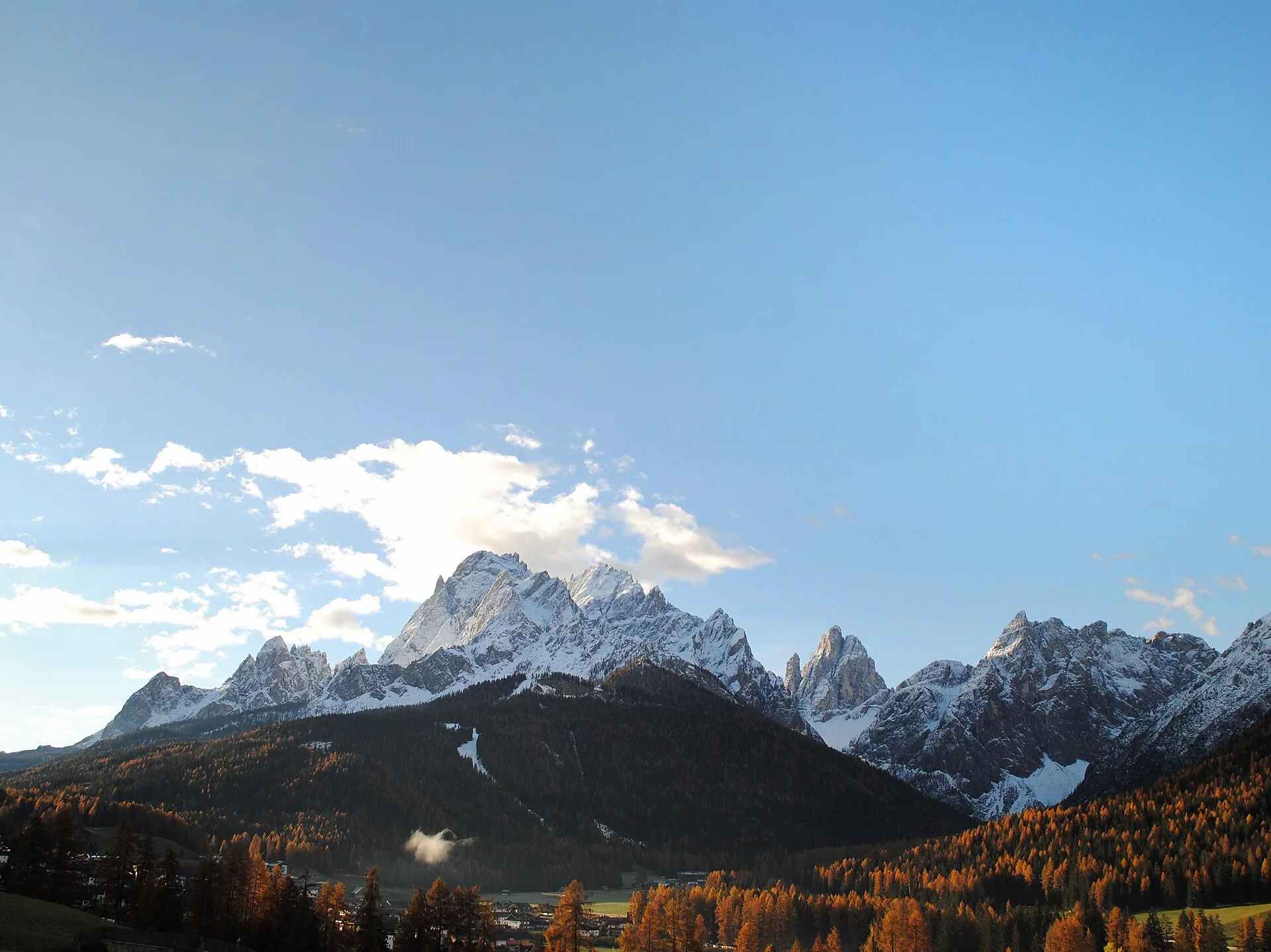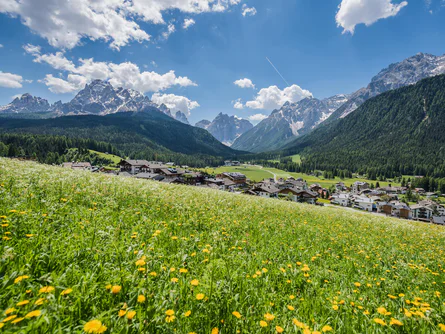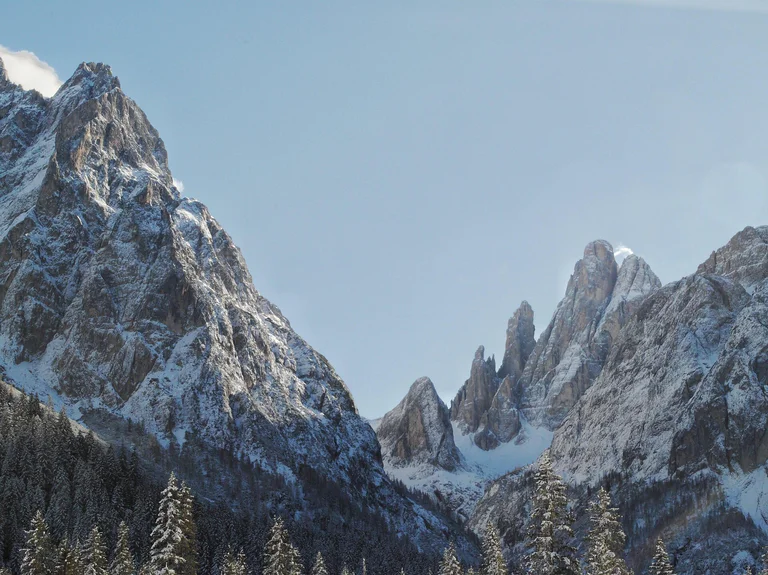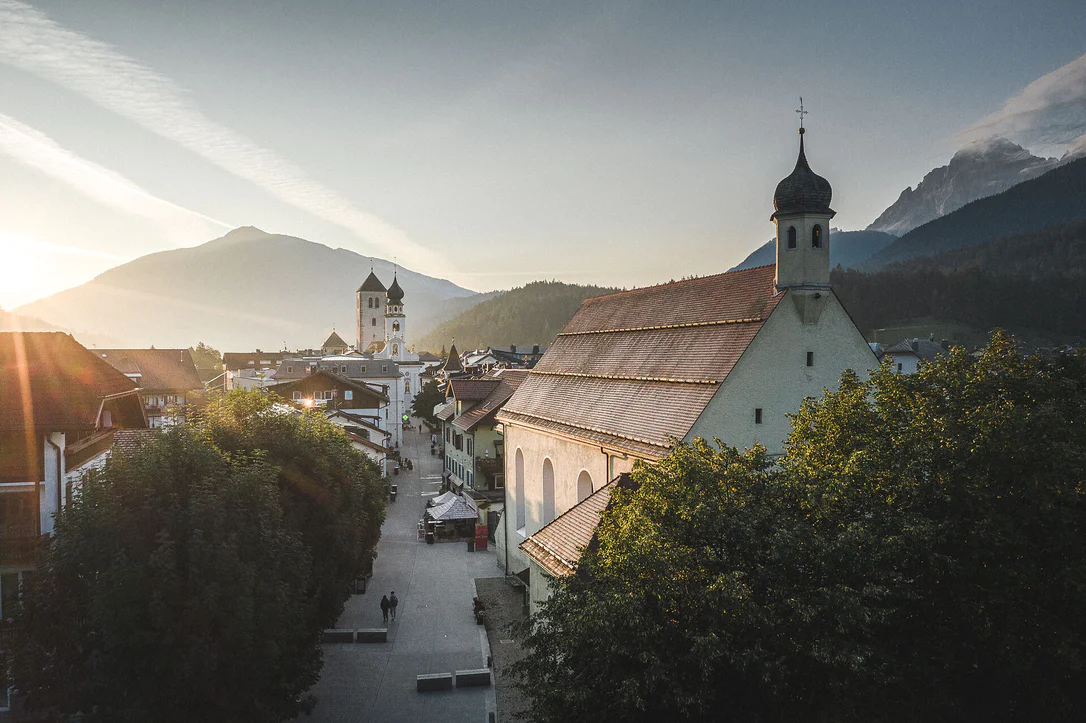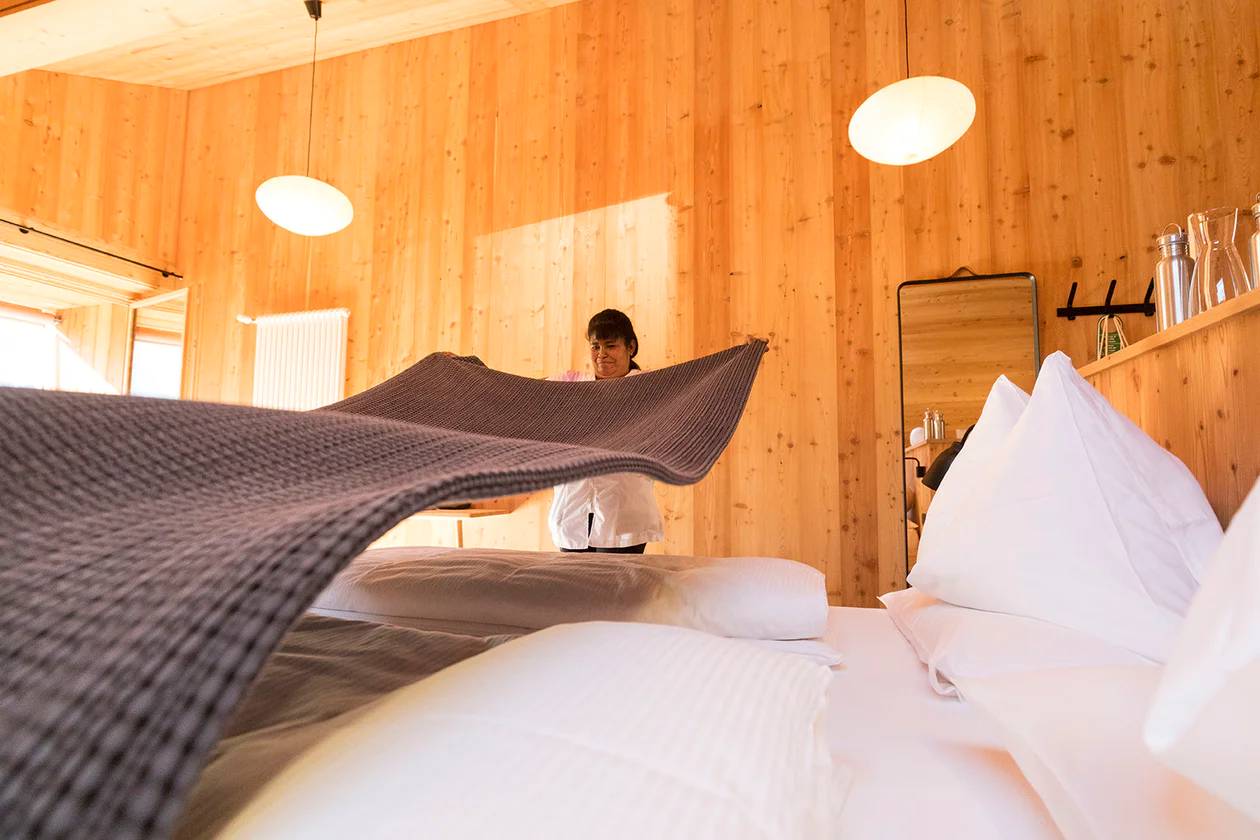It is one of the most striking skylines created by nature – the unique Sesto Sun Dial mountains. The Dolomite peaks number Nine, Ten (Croda Rossa di Sesto), Eleven, Twelve and One tower high above Sesto and jointly form the imposing stone clockwork. The position of the sun above these peaks can be used to determine the time on clear winter days. And: The Sesto Sun Dial also offers continuous new incentive and stimulation to challenge new records and to go beyond one’s personal limits – or even beyond the limits of the imaginable. The people of Sesto are really creative in this context! Greti Rogger, the innkeeper at the Pian di Cengia hut, and her son Daniel have managed to climb all five peaks of the Sun Dial on a single day. It is hard to imagine a more intense race against time! Insider hint: The best place and time to watch the sun above the Sesto Sun Dial is the main road between Moso and the Congress Hall “Haus Sexten” – in winter! This is when the sun dial will match the time of day rather well.
